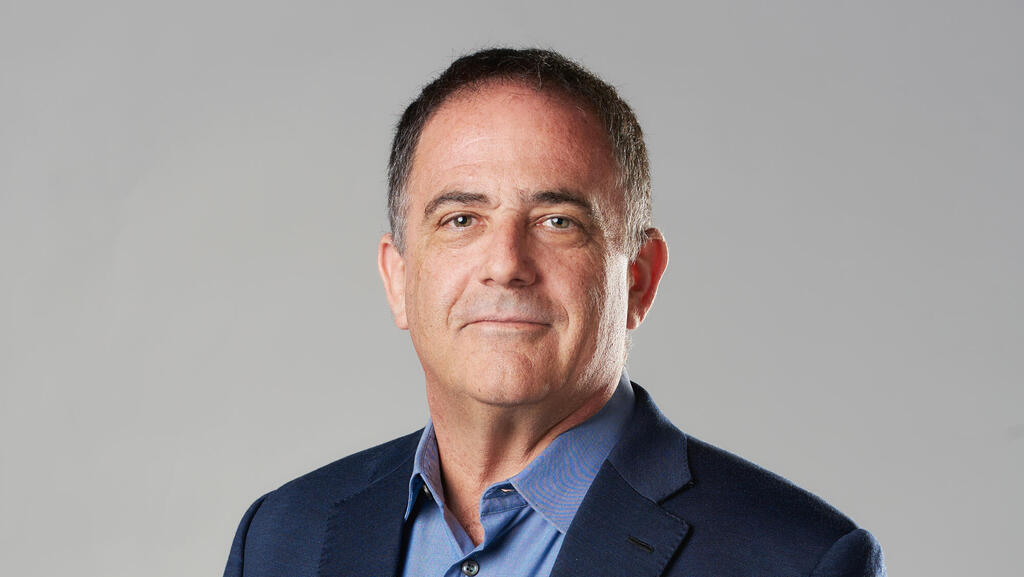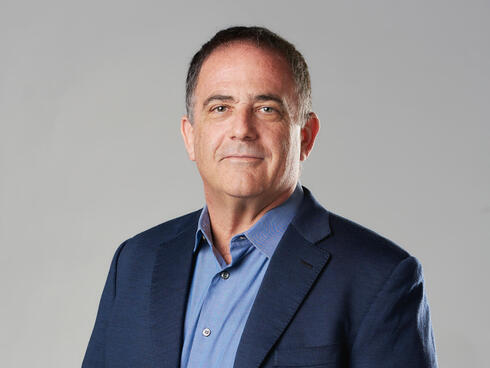
Cato Networks raises $359 million at $4.8 billion valuation, keeps IPO on ice
A third of the new funding goes to employees as Shlomo Kramer delays long-expected listing.
Shlomo Kramer is in no rush to go public, and in the meantime, he’s rewarding his employees. Cybersecurity company Cato Networks announced on Monday that it has completed a massive $359 million Series G funding round at a valuation of $4.8 billion, marking a significant leap from the $3 billion valuation it secured in its previous round in September 2023. The round was led by new investors, including Vitruvian Partners and ION Crossover Partners, alongside existing backers such as Lightspeed Venture Partners, Acrew Capital, and Adams Street Partners.
Full list of Israeli high-tech funding rounds in 2025
This latest raise brings Cato’s total funding to over $1 billion and signals renewed strength in Israel’s cyber industry, following Cyera’s $540 million raise at a $6 billion valuation just two weeks ago.
About a third of Cato’s new funding, roughly $120 million, came through a secondary sale by employees, meaning only 70% of the money raised will actually go into the company’s coffers. The move is primarily designed to allow long-serving staff to cash out some of their holdings, since Cato’s long-anticipated IPO - once expected in 2025 - has now been postponed again.
At the end of 2024, signs pointed to the company ramping up for a listing: it added Mellanox founder Eyal Waldman to its board, as well as Gili Iohan, former CFO of the public cyber company Veronis and now a partner at ION, one of Cato’s investors. Cato announced at the start of this year that it had reached an annual revenue run rate of $250 million, up 46% year-on-year, but it still isn’t profitable, which could complicate any hopes for a premium IPO valuation.
“We didn’t need the money from this round, we could continue growing and reach positive cash flow without it,” says Shlomo Kramer, Cato’s co-founder and CEO, in an interview with Calcalist. “But there was an opportunity here for a round at an attractive valuation that also lets our employees enjoy the fruits of their labor.
Related articles:
“In today’s geopolitical reality, with 3,500 large enterprise customers, it’s important for us to present a strong balance sheet and long-term stability,” Kramer adds. “This funding doesn’t change our IPO plans on Wall Street. If we want, we can press a button and become a public company in a few months.”
Kramer is a serial entrepreneur best known for founding Check Point alongside Gil Shwed and Marius Nacht more than 30 years ago. After retiring from Check Point, he launched cybersecurity firm Imperva, which he sold to private equity giant Thoma Bravo for $2 billion in 2018.
He co-founded Cato with Gur Shatz in 2015 to build a new generation of remote network access using a SASE (Secure Access Service Edge) platform built entirely in the cloud. Cato was founded on the understanding that traditional security and networking infrastructure had grown expensive, slow to adapt, and dangerously fragmented.
Today, IT and network security leaders face rising complexity, leaner teams, and constant pressure to keep their organizations secure. Cato delivers enterprise-grade security and connectivity through a unified, cloud-native platform, replacing legacy patchwork solutions of firewalls, routers, proxies, and point systems.
The fresh capital will help Kaito push the boundaries of the SASE and AI-powered security market, expand its platform’s capabilities, and reach customers who previously fell outside its total addressable market (TAM).
According to Gartner, the SASE market is forecast to grow at an average annual rate of 26% and reach $28.5 billion by 2028, but it remains fiercely competitive, with giants like Palo Alto Networks, Fortinet, and Cisco battling for dominance.
postponed again.At the end of 2024, signs pointed to the company ramping up for a listing: it added Mellanox founder Eyal Waldman to its board, as well as Gili Iohan, former CFO of the public cyber company Veronis and now a partner at ION, one of Cato’s investors. Cato announced at the start of this year that it had reached an annual revenue run rate of $250 million, up 46% year-on-year, but it still isn’t profitable, which could complicate any hopes for a premium IPO valuation.
“We didn’t need the money from this round, we could continue growing and reach positive cash flow without it,” says Shlomo Kramer, Cato’s co-founder and CEO, in an interview with Calcalist. “But there was an opportunity here for a round at an attractive valuation that also lets our employees enjoy the fruits of their labor.
Related articles:
“In today’s geopolitical reality, with 3,500 large enterprise customers, it’s important for us to present a strong balance sheet and long-term stability,” Kramer adds. “This funding doesn’t change our IPO plans on Wall Street. If we want, we can press a button and become a public company in a few months.”
Kramer is a serial entrepreneur best known for founding Check Point alongside Gil Shwed and Marius Nacht more than 30 years ago. After retiring from Check Point, he launched cybersecurity firm Imperva, which he sold to private equity giant Thoma Bravo for $2 billion in 2018.
He co-founded Cato with Gur Shatz in 2015 to build a new generation of remote network access using a SASE (Secure Access Service Edge) platform built entirely in the cloud. Cato was founded on the understanding that traditional security and networking infrastructure had grown expensive, slow to adapt, and dangerously fragmented.
Today, IT and network security leaders face rising complexity, leaner teams, and constant pressure to keep their organizations secure. Cato delivers enterprise-grade security and connectivity through a unified, cloud-native platform, replacing legacy patchwork solutions of firewalls, routers, proxies, and point systems.
The fresh capital will help Kaito push the boundaries of the SASE and AI-powered security market, expand its platform’s capabilities, and reach customers who previously fell outside its total addressable market (TAM).
According to Gartner, the SASE market is forecast to grow at an average annual rate of 26% and reach $28.5 billion by 2028, but it remains fiercely competitive, with giants like Palo Alto Networks, Fortinet, and Cisco battling for dominance.
